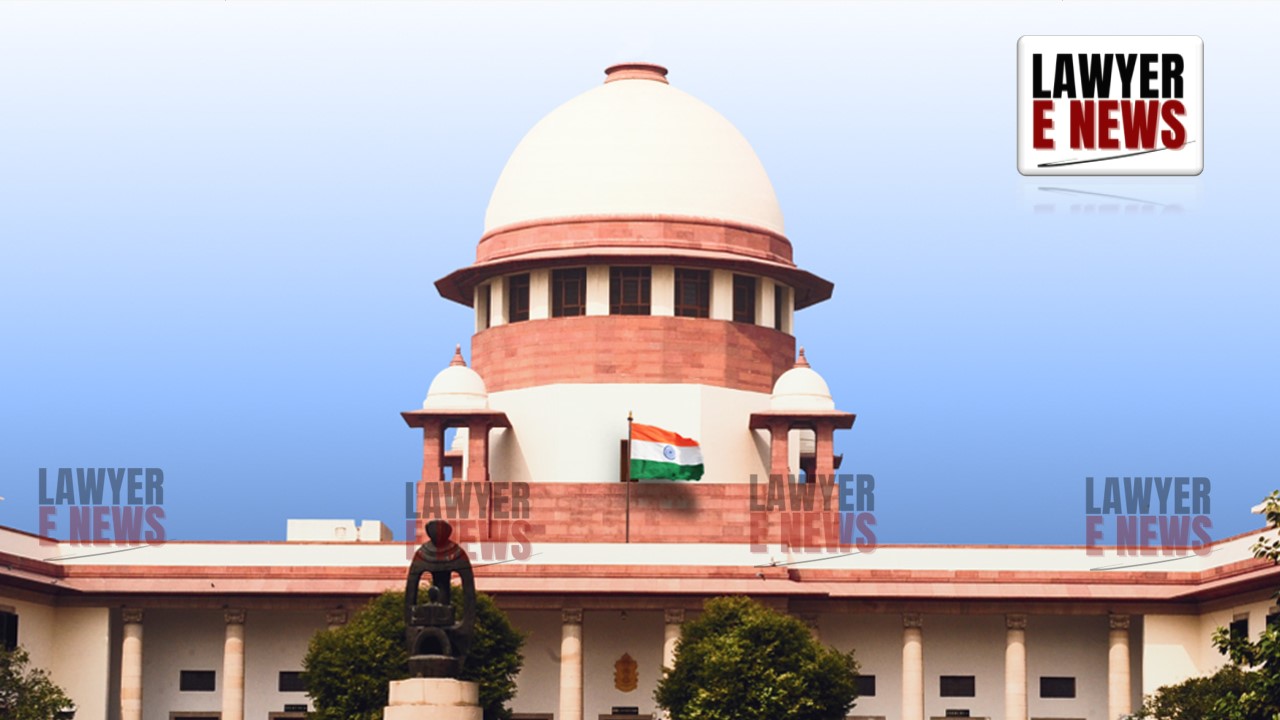-
by Admin
16 February 2026 1:47 PM



High Court Ignored Crucial Evidence, Ownership Cannot Be Rejected on Mere Technicalities – Supreme Court reaffirmed that ownership claims cannot be denied when sale deed boundaries and possession records clearly establish a plaintiff’s rights. In the case of Ayyavu v. Prabha & Ors., the Court set aside the Madras High Court’s ruling, which had dismissed the plaintiff’s suit for an injunction, and restored the First Appellate Court’s decision in favor of the plaintiff.
Justice S.V.N. Bhatti, delivering the judgment, observed, "When a registered sale deed clearly defines the boundaries of a property, and a Commissioner’s report corroborates the plaintiff’s possession, the High Court ought to have been cautious before rejecting the claim. The interference was unwarranted, and the plaintiff’s ownership should not have been denied based on technicalities."
The case stemmed from a dispute over 1¼ cents of land, which was part of a 21-cent property purchased by the plaintiff, Ayyavu, from Mariyammal through a registered sale deed dated August 23, 1988. The plaintiff contended that he had been in continuous and peaceful possession of the entire land, as defined by the boundaries in his sale deed.
The defendants, however, challenged this claim, arguing that the disputed portion was not included in the plaintiff’s sale deed and had remained with Mariyammal, who later donated it to the Tamil Nadu government in 1998. They claimed that the Gram Panchayat had taken possession of this land and had constructed a granite structure on it.
Trial Court Dismisses Suit, First Appellate Court Upholds Plaintiff’s Ownership
The Trial Court dismissed the suit, ruling that the plaintiff had not established a prima facie case since the disputed 1¼ cents was not explicitly mentioned in his sale deed. The court held, "When the plaintiff’s sale deed does not specify the disputed land, the claim of ownership cannot be sustained without stronger evidence."
On appeal, the First Appellate Court reversed this decision, holding that the boundaries in the plaintiff’s sale deed and the Commissioner’s report clearly confirmed his possession. The court also found that the Gram Panchayat’s claim of ownership was based on an unregistered and unproven settlement deed, making it legally ineffective. It ruled, "A document that is neither registered nor legally proven cannot be used to claim ownership over land already sold to the plaintiff."
High Court Dismisses Suit Again, Supreme Court Intervenes
The Madras High Court, in a Second Appeal filed by the defendants, overturned the First Appellate Court’s decision and dismissed the plaintiff’s suit again, stating that:
"When ownership is disputed, an injunction suit alone is not maintainable unless the plaintiff also seeks a declaratory relief."
The plaintiff, Ayyavu, then approached the Supreme Court, challenging this dismissal of his suit on purely technical grounds.
Supreme Court: "High Court Ignored Crucial Documentary and Possession Evidence"
The Supreme Court set aside the High Court’s ruling, ruling in favor of the plaintiff and restoring the First Appellate Court’s judgment. The Court observed that the High Court failed to appreciate the evidence properly and stated:
"The plaintiff’s sale deed boundaries, when read with the Commissioner’s report, leave no doubt that he was in possession of the disputed land. The High Court erred in disregarding these findings and reappreciating the evidence without proper justification."
The Supreme Court also noted that the Gram Panchayat’s claim of ownership was legally unsustainable, stating: "The defendants have not produced any legally valid document to establish ownership over the disputed property. The so-called settlement deed is neither registered nor supported by law. The High Court ought to have accepted the plaintiff’s claim based on documentary evidence and possession records."
"An Injunction Suit Cannot Be Dismissed Solely for Lack of a Declaratory Prayer"
The Supreme Court rejected the High Court’s reasoning that the plaintiff should have filed a declaratory suit instead of an injunction suit, emphasizing that when ownership is evident from clear boundaries and possession records, an injunction suit is maintainable.
Justice Bhatti clarified: "A plaintiff cannot be deprived of his rightful possession merely because he has not sought a formal declaration of title. When the sale deed, boundaries, and possession are clear, denying an injunction on technical grounds is legally unsound."
The Court further emphasized the importance of protecting lawful possession, stating: "The courts must not allow illegal encroachments simply because a plaintiff has not formally sought a declaratory relief. The focus should be on the legitimacy of possession and ownership, as evidenced by legal documents."
Supreme Court Reinstates Plaintiff’s Ownership and Injunction Order
The Supreme Court set aside the High Court’s judgment and restored the First Appellate Court’s ruling, upholding the plaintiff’s ownership and injunction order. The judgment declared, "The High Court erred in interfering with the well-reasoned judgment of the First Appellate Court. The plaintiff’s ownership stands established, and the injunction order must be upheld."
Justice Bhatti, concluding the judgment, observed: "Possession and ownership cannot be ignored when clearly evidenced through sale deeds and official reports. The High Court’s intervention in a well-reasoned judgment of the First Appellate Court was unjustified and legally unsustainable."
"Courts Must Prioritize Legal Ownership Over Technicalities"
The Supreme Court’s ruling underscores critical legal principles:
• When boundaries in a sale deed and possession records support a claim, courts must not reject ownership on technical grounds.
• An injunction suit remains maintainable even without a declaratory relief when ownership and possession are evident.
• A Gram Panchayat or public body cannot claim ownership based on an unregistered and unproven settlement deed.
With this judgment, the Supreme Court has reinforced the fundamental principle that courts must protect lawful possession and ownership instead of dismissing cases on mere technicalities.
Date of Decision: March 7, 2025
